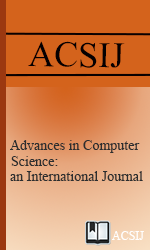Concept of a Work Management System in Nokia: Focusing on Goals Instead of Process Phases
Abstract
Complex systems development requires different ways of working than largely used static process oriented work. In practice, workers invent new ways of working to deal with appearing challenges. Thus, a company’s processes and tools should support these new process paths. Instead of defining a specific flow to conduct the work, several options for work processes should be allowed. This paper introduced the main findings of a case study conducted in a complex product development environment. The goal of the case study was to improve the company’s process support, based on the results of semi-structured interviews and the viewpoints of cognitive approach. The paper points out that it is important to focus on the goals for the work than the actual process phases and task descriptions. As a result of the study, the concept of a Work Management System (WMS) is proposed. The paper introduces this concept and discusses in details the main benefits of using a WMS.
Keywords
Full Text:
PDFReferences
W. A. Shewhart, Statistical Method from the Viewpoint of Quality Control, Washington, Graduate School of Agriculture, 1939.
W. A. Shewhart, Economic Control of Quality of Manufactured Product, ASQ Quality Press, 1931.
ISO 9001:2015 Standard, "Quality management systems – requirements", September 2015.
P. Cronemyr and M. Danielsson, "Process management 1-2-3–a maturity model and diagnostics tool", Total Quality Management & Business Excellence, vol. 24, (7-8), 2013, pp. 933-944.
J. J. Dahlgaard, J. Pettersen and S. M. Dahlgaard-Park, "Quality and lean health care: A system for assessing and improving the health of healthcare organisations", Total Quality Management & Business Excellence, vol. 22, (6), 2011, pp. 673-689.
B. Bergman and B. Klefsjö, Quality from Customer Needs to Customer Satisfaction, Studentlitteratur, 2010.
A. Abecker, S. Dioudis, L. van Elst, C. Houy, M. Legal, G. Mentzas, S. Müller and G. Papavassiliou, "Enabling workflow-embedded OM access with the DECOR toolkit", Knowledge Management and Organizational Memories, Springer, 2002, pp. 63-74.
N. Naikar, R. Hopcroft and A. Moylan, Work Domain Analysis: Theoretical Concepts and Methodology, 2005.
J. Becker, M. Kugeler and M. Rosemann, Process Management: A Guide for the Design of Business Processes, Springer Science & Business Media, 2013.
van der Aalst, Wil MP, "Business process management: A comprehensive survey", ISRN Software Engineering, 2013.
P. A. Bernstein and U. Dayal, "An overview of repository technology", In Proceedings of VLDB, vol. 94, 1994, pp. 705-713.
Z. Yan, R. Dijkman and P. Grefen, "Business process model repositories–Framework and survey", Information and Software Technology, vol. 54, (4), 2012, pp. 380-395.
R. M. Dijkman, M. La Rosa and H. A. Reijers, "Managing large collections of business process models-current techniques and challenges", Computers in Industry, vol. 63, (2), 2012, pp. 91-97.
P. Kruchten, The Rational Unified Process: An Introduction, Addison-Wesley Professional, 2004.
M. Bastarrica, J. Simmonds and L. Silvestre, A Megamodel for Process Tailoring and Evolution, 2014.
J. Simmonds, D. Perovich, M. C. Bastarrica and L. Silvestre, "A megamodel for software process line modeling and evolution", Proceedings of MODELS, 2015.
J. Whittle, J. Hutchinson, M. Rouncefield, H. Burden and R. Heldal, "Industrial adoption of model-driven engineering: Are the tools really the problem?", In Proceedings of the Model-Driven Engineering Languages and Systems, 2013, pp. 1-17.
P. M. Sanderson, Cognitive Work Analysis, 2003.
J. Rasmussen, A. M. Pejtersen and K. Schmidt, Taxonomy for Cognitive Work Analysis, 1990.
R. Fidel, A. Mark Pejtersen, B. Cleal and H. Bruce, "A multidimensional approach to the study of human‐information interaction: A case study of collaborative information retrieval", Journal of the American Society for Information Science and Technology, vol. 55, (11), 2004, pp. 939-953.
P. N. Ghauri and K. Grønhaug, Research Methods in Business Studies: A Practical Guide, Pearson Education, 2005.
M. Vierimaa, J. Ronkainen, O. Salo, T. Sandelin, M. Tihinen, B. Freimut and P. Parviainen, "Comprehensive collection and utilisation of software measurement data", VTT Publications, 2001.
V. Braun and V. Clarke, "Using thematic analysis in psychology", Qualitative Research in Psychology, vol. 3, (2), 2006, pp. 77-101.
M. Vaismoradi, H. Turunen and T. Bondas, "Content analysis and thematic analysis: Implications for conducting a qualitative descriptive study", Nurs. Health Sci., vol. 15, (3), 2013, pp. 398-405.
M. Poppendieck and T. Poppendieck, Implementing Lean Software Development: From Concept to Cash, Pearson Education, 2007.
J. P. Womack and D. T. Jones, "Beyond toyota: How to root out waste and pursue perfection", Harvard Business Review, vol. 74, (5), 1996, pp. 140-.
J. P. Womack and D. T. Jones, Lean Thinking: Banish Waste and Create Wealth in Your Corporation, Simon and Schuster, 2010.
J. Rasmussen, A. M. Pejtersen and L. P. Goodstein, Cognitive Systems Engineering, Wiley, 1994.
K. J. Vicente, Cognitive Work Analysis: Toward Safe, Productive, and Healthy Computer-Based Work, CRC Press, 1999.
J. Hyysalo, J. Lehto, S. Aaramaa and M. Kelanti, "Supporting cognitive work in software development workflows", In Proceedings of the Product-Focused Software Process Improvement PROFES, Springer, 2013, pp. 20-34.
J. Hyysalo, M. Kelanti, J. Lehto, P. Kuvaja and M. Oivo, "Software development as a decision-oriented process", 2014, pp. 132-147.
N. Naikar, "An examination of the key concepts of the five phases of cognitive work analysis with examples from a familiar system", Proceedings of the Human Factors and Ergonomics Society Annual Meeting, 2006, pp. 447-451.
A. Aurum and C. Wohlin, "The fundamental nature of requirements engineering activities as a decision-making process", Information and Software Technology, vol. 45, (14), 2003, pp. 945-954.
G. Ruhe, "Software engineering decision support – a new paradigm for learning software organizations", Advances in Learning Software Organization, Lecture Notes in Computer Science, Springer-Verlag, 2003, pp. 104-113.
 Advances in Computer Science : an International Journal
Advances in Computer Science : an International Journal







